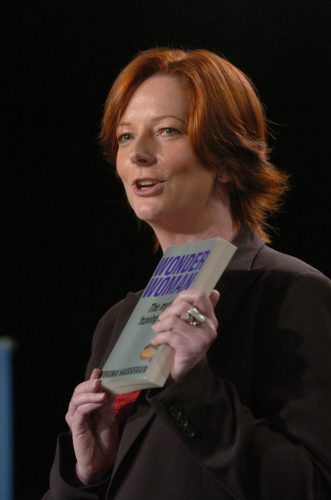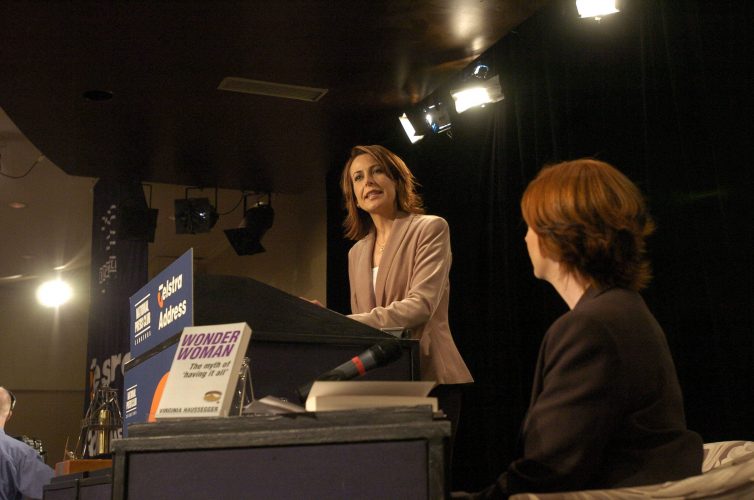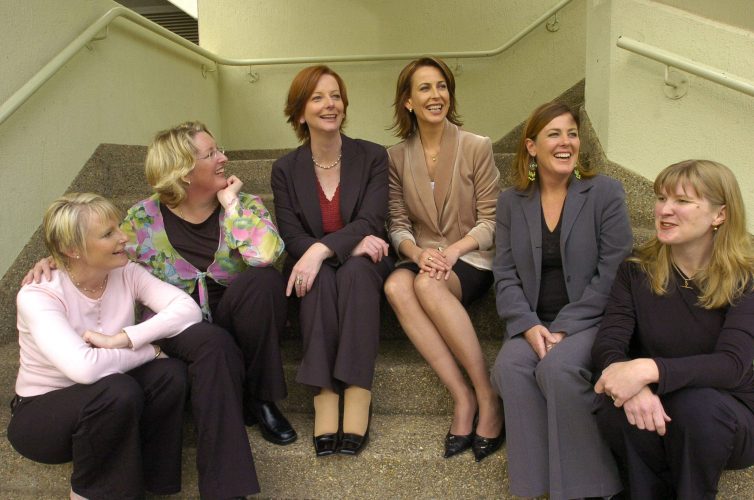When did it become hip and cool to disconnect sex and feeling? Tender feelings of intimacy and exploration; even moments of shared awkwardness. And since when did the art of slow seduction go out of vogue?
Why is Carrie Bradshaw, and the millions of women who emulate her, in a flat panic because her new boyfriend doesn’t want to have sex on their first date? His hesitation by their third date has Carrie in a complete tail-spin. Gay? Nope. We know he’s not. Just not into her? Impossible. He’s smitten. So what’s the problem? OMG! He wants to go ”slow”. Can you believe it?
Having missed Sex and the City the first time around, when it aired a decade ago, I’m catching up on cable. While still stuck back in the late ’90s, the sex talk has nevertheless been instructive. So this is where the notion of female sexual aggression, and Erica Jong’s zipless f*** found a respectable, prime-time showcase. Not only respectable, but feminine as all the protagonists wear pretty party frocks and sexy heels.
But seen now, in the light of 2009, Carrie, Charlotte, Samantha, and Miranda’s hankering for hot sex, in the hope that it comes wrapped in true love and devotion, speaks volumes about how far we haven’t come.
The sexual revolution of the ’60s and ’70s may have ripped off apron strings, and unburdened frustrated libidos, but what did women get out of it? More sex? Yes, possibly. But better sex, and better sexual relationships? Perhaps not.
In fact, these days, Shere Hite, the former ’70s sex goddess and author of the most penetrating sex study of its time, The Hite Report, says we haven’t even had a sexual revolution yet. But Hite is adamant that right now, more than ever, ”we need one”.
Sure, we’re all a lot more relaxed than our parents and grandparents ever were about sex. And our sexual appetites might be broader. But for many women, sexual intercourse still centres on male demands: that is, his needs, and achieving his orgasm. Much of the highly stylised female sexiness that we see flaunted through the media, on billboards, music videos, and women’s magazines, purports to celebrate a sexual assertiveness, which is in fact more of a commercial construct than a reality.
Most women don’t gyrate in lacy underwear, or lounge in silk and stilettos. Much of this imagery, sold as evidence of women’s sexual freedom, is really women acting out male fantasies. Hite says these aren’t ”the new woman”, but rather ”out- of-date caricatures of old views of sexy women”.
In the confusion over what’s good sex, and what’s sexy ‘Hollywood’ sex, some women have interpreted the media’s hard sell of female assertiveness as a need to be unnaturally sexually aggressive. Aggression is fine, if you get what you want. But as Carrie and her pals prove repeatedly, all that ballsy bravado is really just a desperate cry for some tender loving – which, sadly, is in short supply.
Hite is right. We haven’t scratched the surface of a true sexual revolution yet.
And if the publicity blurb about Bettina Arndt’s new book, The Sex Diaries, out on Monday, is anything to go by, we certainly need to. But not the kind of revolution Arndt might have in mind.
As the nation’s most prominent sex therapist, Arndt’s suggestion to the hordes of Australian women who have ”gone off sex” is – put bluntly – get over it. Again according to her publicity, Arndt challenges the notion that women need to ”want sex in order to enjoy it”. She suggests that women ought to crash through that ”ideological roadblock” and instead ”just do it”.
Now, if that sounds like great- grandmother’s advice, ”lie back and think of England my dear”, it is. The notion of women passively submitting to uninspiring sex is an archaic and unforgivable suggestion that takes us back to some very dark old days indeed. Which makes one wonder why Arndt isn’t turning her spotlight instead on the reason some women may have lost interest in sex. In addition to being worn out and over-tired, the real reason might have a lot to do with their uninspiring, unstimulating partners.
Where is the focus on how unsexy it is to try snogging a dull, lazy, tenderless man?
It isn’t women’s ”fragile female libido”, as Arndt suggests, that is the problem. It’s the simple fact that a female desire for sex needs to be stirred. To that end, a bit of sensual caressing, seductive pampering and tenderness can work wonders.
For Arndt to suggest that women should simply put out, in order to keep a marriage alive, is a frightening, but timely, reminder of why we clearly need a sexual revolution. But this time, a real one. A revolution that places the sensual needs and desires of women on equal billing with a man’s, so that female enjoyment and physical release – her orgasm – is as important as a male’s. After all, who on earth came up with the idea that coitus concluded with male ejaculation? Well, that’s a silly question. We all know who: a man.





